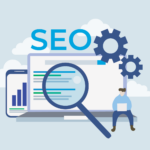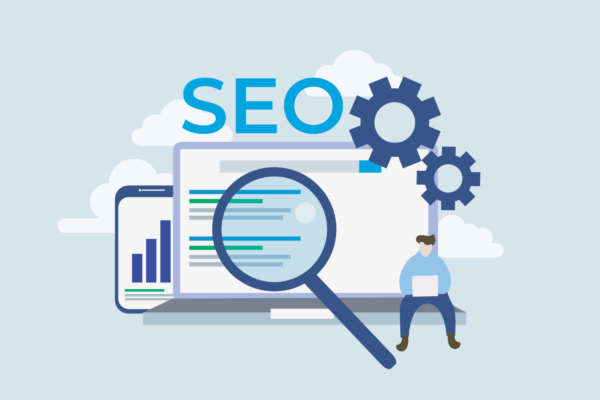SEO optimalisatie is an essential component of any digital marketing strategy in 2025. However, as search engine algorithms become more sophisticated, businesses often fall into common traps that hurt their rankings and prevent them from achieving their goals. Understanding these mistakes and knowing how to avoid them can help marketers, bloggers, and SEO professionals optimize their efforts effectively and achieve long-term success.
In this article, we’ll dive into the most common SEO mistakes that businesses make today and provide actionable tips on how to avoid them. From content optimization issues to ineffective backlink strategies, we’ll also discuss how modern techniques like mobile-first indexing, user experience (UX), and EEAT (Experience, Expertise, Authoritativeness, Trustworthiness) can be leveraged to improve your SEO. Additionally, we’ll identify outdated tactics that no longer work, so you can avoid wasting time and resources on strategies that no longer provide results.
1. Keyword Stuffing: A Thing of the Past
The Danger of Over-Optimization
One of the oldest and most common SEO mistakes is keyword stuffing. While keywords are still important for SEO, overusing them in an attempt to rank higher can lead to penalties. Google’s algorithms have become far more sophisticated and now prioritize content that is natural and user-friendly, rather than content stuffed with repetitive keywords.
Tip: Instead of focusing on keyword frequency, prioritize quality content that naturally incorporates relevant keywords and related terms. Think about user intent and create content that solves problems or answers questions.
2. Neglecting User Experience (UX)
The Impact of Poor UX on SEO
Google’s Core Web Vitals and focus on user experience (UX) have made it clear that providing a positive experience for your visitors is critical for SEO. Websites with poor navigation, slow load times, or unresponsive designs will see higher bounce rates and lower rankings.
Tip: Focus on making your website fast, mobile-friendly, and easy to navigate. Optimize your page speed using tools like Google PageSpeed Insights, and ensure that your design is responsive across all devices.
Mobile-First Indexing
In 2025, mobile-first indexing is the standard. If your website isn’t optimized for mobile, you’re at a serious disadvantage.
Tip: Make sure your website’s mobile version is as optimized as its desktop version. Check that it’s fast, responsive, and easy to navigate on mobile devices.
3. Ignoring EEAT (Experience, Expertise, Authoritativeness, Trustworthiness)
The Role of Trust and Authority in SEO
In recent years, Google has placed a heavy emphasis on EEAT (Experience, Expertise, Authoritativeness, Trustworthiness) as a ranking factor, especially for YMYL (Your Money or Your Life) content like healthcare, finance, and legal topics. Websites that don’t establish themselves as credible and trustworthy sources are unlikely to rank well.
Tip: Ensure that your content is written by experts in the field, and provide authoritative references to support your claims. Including author bios and credentials can also help build trust with both users and search engines.
Building Trust with Backlinks
Backlinks are another key element of establishing authority. However, acquiring low-quality or irrelevant backlinks can actually hurt your rankings.
Tip: Focus on earning backlinks from high-quality, relevant websites in your niche. Aim for organic backlinks through content marketing, guest posting, and collaborations with influencers.
4. Forgetting About Technical SEO
The Importance of Site Structure and Speed
While content plays a central role in SEO, technical SEO should never be overlooked. Issues like broken links, poor URL structure, and slow loading speeds can prevent search engines from crawling and indexing your site effectively.
Tip: Regularly audit your website’s technical SEO to ensure everything is working properly. Tools like Google Search Console, Screaming Frog, and Ahrefs can help identify and fix technical issues that may affect your rankings.
Fixing Broken Links and Duplicate Content
Broken links and duplicate content can also harm your SEO efforts. Google considers these as negative user signals and may reduce your rankings as a result.
Tip: Regularly check for broken links on your website and fix them. Use canonical tags to resolve duplicate content issues, and consolidate similar pages when necessary.

5. Overlooking Local SEO
The Rise of Local Search Optimization
For businesses that operate locally, neglecting local SEO is a major mistake. Local SEO involves optimizing your website for location-based searches, ensuring your business appears in Google’s local pack and map results.
Tip: Claim and optimize your Google My Business listing, ensuring that all your business details—such as address, phone number, and hours—are accurate and up-to-date. Also, focus on local keywords and get reviews from local customers to improve your local SEO presence.
6. Focusing Too Much on Rankings, Not Conversions
SEO is About More Than Just Rankings
While rankings are important, focusing exclusively on search engine results can lead to missed opportunities in driving actual conversions. Many businesses optimize their websites for traffic but forget about converting that traffic into leads or sales.
Tip: Focus on optimizing your site for conversions as well. Ensure your CTAs (calls to action) are clear, your content is designed to engage users, and your user journey is streamlined to lead to conversions.
7. Using Outdated SEO Techniques
What’s No Longer Working in 2025
SEO is constantly evolving, and techniques that once worked may now be ineffective or even harmful. For example, practices like keyword stuffing, excessive link exchanges, and focusing solely on backlinks are no longer reliable strategies.
Tip: Stay updated with the latest SEO trends and algorithm updates. Avoid focusing solely on ranking factors like backlinks, and instead focus on holistic strategies like content quality, mobile optimization, and user experience.
8. Not Monitoring or Analyzing Your SEO Efforts
The Importance of Tracking SEO Performance
One of the biggest mistakes businesses make is not tracking their SEO efforts. Without measuring success, you won’t know which strategies are working or where to make improvements.
Tip: Use tools like Google Analytics, SEMrush, and Ahrefs to track key metrics such as organic traffic, keyword rankings, bounce rate, and conversion rate. Regularly analyze your SEO performance and make data-driven decisions.
9. Summary & Actionable Checklist
To avoid common SEO mistakes and improve your SEO optimalisatie in 2025, follow this checklist:
- Focus on User Experience: Optimize your website for mobile-first indexing, fast load times, and easy navigation.
- Implement EEAT: Build trust and authority through high-quality, expert-backed content and authoritative backlinks.
- Fix Technical Issues: Regularly audit your website for technical SEO issues like broken links and slow page speeds.
- Optimize for Local SEO: For businesses with a physical presence, optimize your site for local search.
- Track Your SEO Performance: Use tools like Google Analytics and SEMrush to monitor your SEO efforts and adjust strategies accordingly.
- Stay Updated: SEO is always evolving, so keep up with the latest trends and algorithm changes to stay competitive.
By following these strategies and avoiding common mistakes, you’ll be on your way to improving your SEO rankings, driving more traffic, and ultimately increasing conversions.
Meta Description (150-160 words):
Learn how to avoid the most common SEO optimalisatie mistakes and optimize your website for better rankings and performance in 2025. Discover best practices for content optimization, backlink building, user experience (UX), mobile-first indexing, and EEAT (Experience, Expertise, Authoritativeness, Trustworthiness). This guide provides actionable tips for improving SEO and avoiding outdated techniques like keyword stuffing and low-quality backlinks. Whether you’re a marketer, blogger, or SEO professional, these insights will help you succeed in the evolving SEO landscape.
releated:5 Advantages of Choosing an SEO Agency Over a New Team







